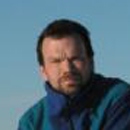Advisory Board and Editors Ecosystem Science

Claudio Vasapollo
I am a marine biologist working as a fishery and benthic researcher at the Institute for Marine Resources and Biotechnologies (IRBIM) of the National Researche Council (CNR) in Ancona, Italy. I held my PhD in 2010 at the The Open University (Milton Keynes, UK) working at the Stazione Zoologica A. Dohrn of Naples (Italy) where I conducted a study on the spatial and temporal distribution of macro benthic assemblages associated to Posidonia oceanica seagrass and on several features of the plant itself. I got a Master degree in 2005 at the Polytechnic University of Marche after the Bachelor's degree in Marine Biology at the same university in 2004. I participated in several surveys at sea in the last years as well as to several diving expeditions in the Indian Ocean and Mediterranean Sea.

Scott Veirs
Oceanographer and bioacoustician facilitating the recovery of endangered regional icons of the Pacific Northwest (U.S.), particularly southern resident killer whales and Pacific salmon. I helped design and was the first major in the Earth Systems program at Stanford University, then earned a M.S. and PhD in Oceanography at the University of Washington. In 2003 I founded Beam Reach and taught ~50 undergraduates and recent graduates to ask and answer their own marine field science questions during 10-week field courses from 2005-2012. During the same period I helped create the Salish Sea Hydrophone Network -- orcasound.net -- which I continue to administer.

Gregory M Verutes
Gregg Verutes is a biogeographer currently supporting Blue Forest Conservation's data management, visualization, and reporting systems. He specializes in blending the fields of conservation and technology to empower planners, managers, and analysts who are passionate about protecting the multitude of benefits flowing from ecosystems to people. He has previously worked for the National Geographic Society, Audubon Society, World Wildlife Fund, and Stanford University. Gregg received his Ph.D. in Marine Science & Technology from the University of Santiago de Compostela, a M.Sc. in Geographic Information Science from San Diego State University, and B.Sc. in Policy Analysis & Management from Cornell University.

Martha Vives
Full professor, Biological Sciences Department, Los Andes University. Vice dean for Research Affairs, School of Sciences. Past coordinator for the Microbiology program.

Eric J Ward
I’m a statistician / quantitative ecologist at the Northwest Fisheries Science Center (NOAA) in Seattle and an affiliate professor at the School of Aquatic and Fishery Sciences (SAFS) at the University of Washington. I work on a wide range of statistical problems – population dynamics, extinction risk, conservation genetics, fisheries stock assessment, reproductive success studies, etc. Most of the species I study are fish, but I also work with data from marine mammals, seabirds, and turtles. Much of my recent modeling interests have been pursuing applications of multivariate state-space time series and spatio-temporal models, isotope mixing models, and Bayesian model selection techniques.

Louise Willemen
Department of Natural Resources, Faculty of Geo-Information and Earth Observation, of University of Twente, the Netherlands.PhD in spatial modelling from Wageningen University, the Netherlands.Worked before @ Bioversity International in Colombia, the European Commission’s Joint Research Centre in Italy, Cornell University in the USA.Current roles: Coordinating Lead Author of the Land Degradation and Restoration assessment of IPBES, Chair of the Steering Committee of Ecosystem Services Partnership, and editorial work for several journals. Ecosystem services and rural development researcher. Current research includes RS-based ecosystem service mapping and monitoring, impact assessments of integrated restoration, and prioritization of investments in land degradation neutrality actions.

L. LaReesa Wolfenbarger
Dr. Wolfenbarger conducts research on the ecology and conservation of grassland species and communities in the agricultural landscape of the Great Plains. She also devotes research time to synthesizing information for policymakers and resource managers so that scientific results are readily available for decision makers.

Huiting Wu
Dr. Huiting Wu is a lecturer in the School of Geosciences and Surveying Engineering at China University of Mining and Technology (Beijing) in Beijing, China.
Dr. Wu's research focus is on taxonomy, palaeoecology and morphology of brachiopod, mass extinction and biotic recovery. She is also interested in ecology and morphological changes of brachiopod in modern ocean, bivalves and ammonoids.
Dr. Wu is a graduate of China University of Geosciences (Wuhan). Between 2016-2017, she was a visiting scholar in Deakin University. Between 2018-2010, she was a post-doctors fellow in the Peking University.

Nigel G. Yoccoz
Professor of Statistical Ecology at the Institute of Arctic and Marine Biology of UiT The Arctic University of Norway since 2003. Associate Editor of "Methods in Ecology and Evolution", "Ecography" and "Wildlife Biology", and former associate editors of Ecology and Ecology Letters.

Chris B Zou
Professor of Watershed Hydrology and Ecohydrology at the Department of Natural Resource Ecology and Management, Oklahoma State University.

Matteo Zucchetta
Matteo Zucchetta obtained his PhD thesis entitled "Habitat distribution models for the management of fishery and conservation concern species in lagoon environment” at the University Ca’ Foscari Venice (Italy). He has previously covered the position of researcher University Ca’ Foscari Venice (Department of Environmental Sciences, Informatics and Statistics) and at the National Centre for Coastal Zone Protection and Characterization, Marine Climatology and for Operational Oceanography of the Italian Institute for Environmental Protection and Research (ISPRA). Since 2020 he is a researcher of the Institute of Polar Sciences of the National Research Council of Italy. His work was carried out in the framework of different EU and Italian projects, and his main research topics are: 1) analysis of the spatial distribution of plant and animal species in coastal and transitional water bodies; 2) Community ecology in transitional water ecosystems; 3) Use of fish fauna assemblages as indicators of ecosystem ecological status; 4) Ecological models for food webs analysis; 5) Climate changes effects on aquatic ecosystems.

